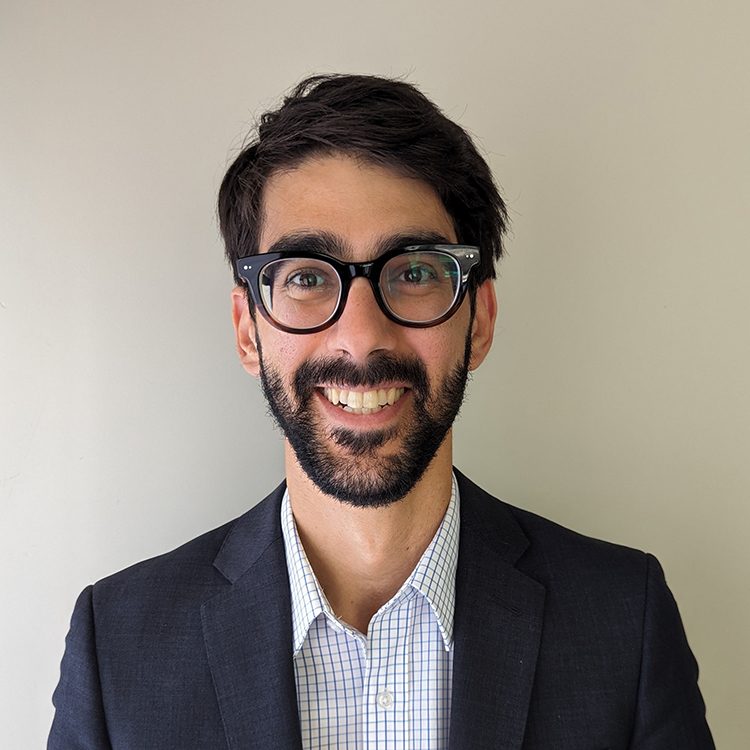An Ardent Advocate in Criminal Defense Law
Angelo Petrigh brings nearly twelve years of criminal defense experience with the Bronx Defenders to BU Law’s Criminal Law Clinical Program.

An Ardent Advocate in Criminal Defense Law
Angelo Petrigh brings nearly twelve years of criminal defense experience with the Bronx Defenders to BU Law’s Criminal Law Clinical Program.
Angelo Petrigh went to college to study political theory, convinced the best way he could make a difference was to address the broad systemic problems within the criminal legal system. A class on the death penalty, taught by two public defenders, changed his mind and the course of his career.
“We learned about some of the frustrating realities in how the courts and political systems fail to address the injustice inherent to criminal law,” Petrigh says. But more than that, he recalls his professors demonstrating the “value of being an advocate for a client in a system that is characterized by unfairness, racism, and bias.” It was then that Petrigh began to feel that, while systemic work is important, it is often a step behind in the fight for progress. The most effective way to make a difference, he felt, was through direct action and eventually a career in law.
“That class was the first step in learning how direct representation is an awesome responsibility but also incredibly rewarding,” Petrigh says. “When I’m representing someone, I can give them some measure of autonomy in an overbearing system… I strive to provide the level of representation that we would all want for a family member if they were accused of a crime.”
Petrigh has dedicated his career as a public defender to addressing the issues of racial justice and government power in America. Prior to joining BU Law, he was the training director for the Bronx Defenders’ Criminal Defense Practice. During his nearly twelve years there, Petrigh handled a wide range of caseloads, providing counsel on everything from low-level misdemeanors to homicides, and was responsible for the development of 150 staff members from their initial training through to handling complex felonies. He has taught at national trial skills programs, criminal defense conferences, and public defense offices across the country, primarily training those seeking to transition to an interdisciplinary, holistic model.
“I worked for years preparing recent graduates to become zealous advocates for clients accused of crimes,” says Petrigh. “I decided to become a clinical professor so that I could delve even further into how the next generation of lawyers can become the best advocates possible.”
Professor Petrigh is looking forward to engaging with BU Law students in the Criminal Law Clinical Program, teaching them the importance of advocacy and client counseling in criminal trials like he learned from his own professors. His advice to students would be to “experience as many things as possible through internships and classes,” saying “I went to law school with a strong feeling that I wanted to be a public defender, but I am so glad I did internships and research about housing law, land use, and a number of other areas that were interesting and enlightening for me.”
I worked for years preparing recent graduates to become zealous advocates for clients accused of crimes. I decided to become a clinical professor so that I could delve even further into how the next generation of lawyers can become the best advocates possible.
The Criminal Law Clinical Program provides BU Law students the opportunity to learn first-hand what it means to be a criminal law attorney, including formulating case strategies, engaging in client counseling, drafting legal pleadings, and litigating trials and other matters in court. Within the Defender Clinic, Professor Petrigh will advise students acting as defense counsel to indigent defendants charged with criminal offenses.
“Clinics allow students to learn practical skills and put their legal knowledge into practice, but they also give them space to think about the bigger issues in representation and the legal system that they may not be able to grapple with when in practice,” Petrigh says. “Some of my research focuses on those bigger issues, such as how to counsel clients in systems that are largely defined by injustice.”
Petrigh’s scholarship examines the unspoken rules and pressures in courthouses that influence criminal legal rights, including the structural incentives placed on judges. His recent article, “Judicial Resistance to New York’s 2020 Criminal Legal Reform” published by the Journal of Criminal Law and Criminology discusses the judiciary’s opposition to New York’s criminal law reforms and how it can be addressed. Petrigh proposes that for these changes to be successful, “the popular and political will to pass the reforms must extend beyond the passage of the law and must also create mechanisms to scrutinize, guide, and support the judiciary’s implementation of the law.”
Professor Petrigh received his BA cum laude from Cornell University and JD cum laude from New York University School of Law, where he was a Dean’s Scholar and a Carroll and Milton Petrie Foundation Scholar.